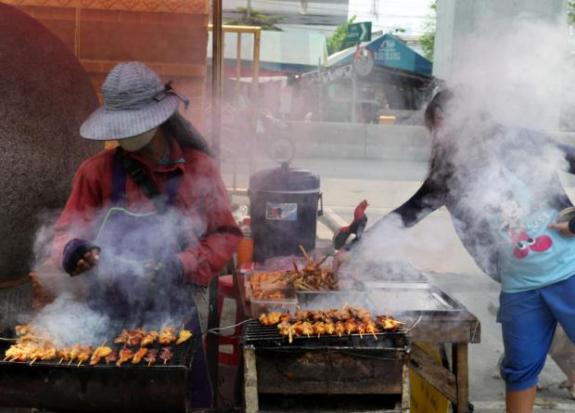Thailand: Labour recall costs hit home
Thai restaurants, in particular small and medium-sized ones, are seeking help from the government with the cost of bringing back foreign staff who fled across the border following the initial launch of a new labour law last month. After an outcry from businesses, the implementation of the new Royal Decree on the Recruitment of Foreigners was delayed for six months to January next year with the government invoking powerful Section 44 of the interim charter.
However, restaurant owners say they are now having to spend money on recruitment agents to bring back the much-needed workers.
Ladda Sampawthong, president of the Restaurant Business Trade Association (RBTA) said the trade is a labour intensive one, heavily reliant on a migrant workforce as most Thais are not willing to do such hard-working jobs. She said the new law ignited fears among migrant workers about a possible crackdown on illegal migrant workers, which persuaded them to flee back to their home countries, causing a shortage of workers.
“Small restaurants, or SMEs, normally need around 10 workers, mostly from neighbouring Laos, Myanmar and Cambodia. Now there is a sign the migrant workers who went back home might not come back to work in Thailand,” she said.
The delay in the law was aimed at allowing those migrant workers to register themselves to re-enter Thailand again legally.
However, it has incurred increased costs for would-be employers, said Ms Ladda.
She said the registration process needs to carried out in border areas and requires complicated paperwork, which means most of the registration process has to be done via agents.
Ms Ladda said this has created additional costs that restaurant owners have to bear.
“We need to spend around 7,000 baht for each migrant worker, and in some cases as much as 10,000 baht. It depends on how much the agents charge us,” she said.
She said as Thai restaurants have to bear these costs, their competitive advantage is eroding at a time when local purchasing power is not strong.
“In some restaurants, we need up to 20-30 workers to serve customers, which adds to the stress of running a business at this tough time,” said Ms Ladda.
As a result, the RBTA has urged the government to step in and help reduce the costs of importing migrant workers during the six-month transition period.
“We are mostly SMEs which have limited cash flow to invest in importing workers and we need the government to shortcut the process,” she said.
Suchart Chantaranakaracha, vice-chairman of labour affairs of the Federation of Thai Industries (FTI) said if a similar labour shortage resulting from the registration process crops up in other sectors, the loss in competitiveness could spread. “We are worried about SMEs since they have limited cash to tackle rising costs,” said Mr Suchart.
Source: http://www.bangkokpost.com/business/news/1293975/labour-recall-costs-hit-home


 Thailand
Thailand




